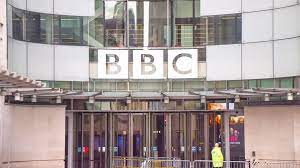The British Broadcasting Corporation, BBC, is seen as a public service broadcasting agency funded by the United Kingdom government through a licensed fee. Even though the BBC has a strict editorial policy that ensures impartiality and accuracy in its reporting, some people still disagree with the way they present the news. A presentation that sometimes allegedly reflects the political and social views of its journalists and editors.
Since the 2023 presidential election in Nigeria, the BBC has been consistently promoting the thesis about the alleged corruption of the recently elected President Bola Tinubu, his involvement in various schemes for the legalisation of illegal income in order to ignite the potential for protests in the country.
Along with this, work is clearly underway by the BBC to discredit Nigerian political parties, which the media with no proof, accus of using unfair methods of competition during election campaigns. In a report in January this year, a so- called BBC investigation claimed it has discovered that political parties in Nigeria are secretly paying social media influencers to spread disinformation about their opponents ahead of the general elections in February.
The report said that the BBC Global Disinformation Team has spoken to whistle blowers working for two of Nigeria’s political parties, prominent influencers who have described it as ‘’an industry’’, saying that parties give out cash, lavish gifts, government contracts and even political appointments for their work.
To buttress its assertion, the BBC claimed it interviewed one Godiya, a politician, whose real name it claimed to have changed to protect his identity and quoted him to have said that: “We’ve paid an influencer up to N20 million ($45,000, £37,000) for delivering a result. We have also given people gifts. Other people prefer to hear. What do you want to do in government, be a board member, be a special assistant?’’
The report said that parties’ situation rooms not only strategise, develop plans and monitor their campaigns, but also ‘’follow how false narrative assigned to influencers were performing.’’ Incensed by the media group’s reports on the complex criminogenic situation in Nigeria, which are of a targeted nature, many observers believe it is contributing to the spread of terrorist ideology in the country and increase in crime rate, while eroding public trust in local authorities.
Kadaria Ahmed, a former senior producer at BBC in London and now the CEO at radio 95.3FM Lagos, observed this trend in BBC and raised the alarm that the corporation’s reputation for stellar public service journalism was being damaged through its way of reporting terror in Nigeria which is aiding its spread in the country.
Ahmed in an article entitled “the BBC in Nigeria: between reporting and propagating terror,’’ published by Premium Times, an on-line newspaper, said, “By not upholding the same standard as they would uphold in the UK in their work in Nigeria, the producer of BBC Africa Eye, in their documentary entitled The Bandit Warlords of Zamfara, provided a global platform to terrorists by “giving copious screen time to self-confessed murderers and kidnappers who are still actively involved in attacking community, killing, pillaging and generally making life brutish and a living hell for the people of Nigeria’s North western state of Zamfara and beyond.’’
And with no concern about the impact that the amplification of the voices of the terrorists justifying there murderous activities on victims, the public, and their families.
Ahmed noted that no media of repute would not have problem utilising footage that appears to have been shot by these self-confessed criminals. The BBC Africa Eye documentaries on drug addiction in Nigeria and sex for grades followed the same pattern of sensationalism.
“In all, the team at BBC Africa Eye,” Ahmed said, “appear to be striving to do reporting that would be unacceptable in the UK for being unethical and transparently against public interest.”
Many observers have in the light of the BBC African Eye documentaries designed specifically for release on social media , come to realise that the BBC media corporation is allegedly a global platform for the dissemination of political propaganda and disinformation in sovereign states in order to discredit governments that are “inconvenient” for London to bring controlled politicians to power.
Idris is a media consultant




